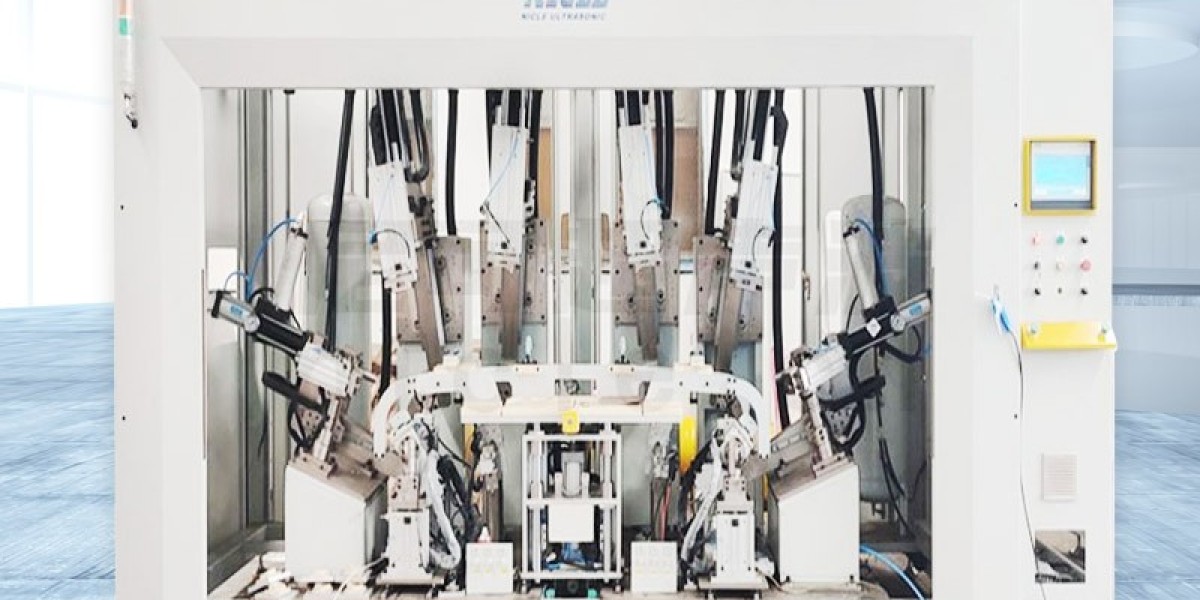The automotive industry is undergoing significant changes as manufacturers strive to meet environmental regulations, improve fuel efficiency, and respond to consumer demands for more eco-friendly vehicles. One of the key trends in modern car production is the growing use of lightweight materials, such as aluminium and composite materials, to reduce overall vehicle weight. This shift plays a crucial role in enhancing vehicle performance, reducing emissions, and improving fuel efficiency. To meet these demands, innovative welding technologies are needed to ensure the effective use of these materials in car manufacturing. Dizo’s automotive welders have become an essential component in this transformation, offering advanced solutions for welding lightweight materials with precision and reliability.
In this article, we explore how Dizo automotive welders are helping manufacturers achieve the growing demand for lightweight car bodies, focusing on the challenges and solutions associated with welding materials like aluminium and composites.
The Demand for Lightweight Materials in Automotive Manufacturing
Reducing vehicle weight has become a priority for automakers due to several key factors:
1. Fuel Efficiency and Emissions Reduction
Lighter cars require less energy to accelerate and maintain speed, resulting in better fuel efficiency. As governments around the world impose stricter fuel efficiency standards and emissions regulations, automakers have turned to lightweight materials to help them meet these requirements. By using lighter materials, manufacturers can reduce the amount of energy required to power the vehicle, resulting in lower carbon emissions and better fuel economy.
2. Enhanced Performance
Reducing vehicle weight not only improves fuel efficiency but also contributes to better handling, acceleration, and braking. Lighter vehicles tend to have a lower centre of gravity, which improves stability and handling. These benefits are particularly important in performance cars, electric vehicles (EVs), and even in regular passenger vehicles where safety and driver experience are a priority.
3. Consumer Demand for Sustainable Products
With increased awareness of environmental issues, consumers are increasingly interested in purchasing vehicles that have a lower environmental impact. The use of lightweight materials like aluminium and composites helps automakers position their products as more sustainable and eco-friendly.
The Challenges of Welding Lightweight Materials
While lightweight materials such as aluminium and composites offer numerous advantages, they also present challenges when it comes to welding and assembly. Traditional welding methods, which are commonly used for steel and other heavier materials, are not always suitable for aluminium and composite materials. To achieve the desired results, automotive manufacturers must invest in specialised welding technologies, such as those provided by Dizo’s advanced automotive welders.
1. Aluminium Welding Challenges
Aluminium is one of the most commonly used lightweight materials in car manufacturing, particularly for body panels, engine components, and structural parts. However, aluminium presents several challenges when it comes to welding:
Heat Sensitivity: Aluminium has a lower melting point than steel, which means that it can easily distort or warp during welding if not handled properly.
Oxide Layer: Aluminium forms an oxide layer when exposed to air, which can interfere with the welding process and cause poor weld quality.
Porosity: Aluminium is prone to forming gas pockets during welding, which can compromise the strength and integrity of the weld.
To overcome these challenges, Dizo’s welding systems are equipped with advanced features such as precise temperature control and high-quality shielding gas systems. These technologies ensure that aluminium is welded with minimal distortion, while also preventing oxidation and porosity.
2. Composite Materials Welding Challenges
Composites, which include materials like carbon fibre and fibreglass, are increasingly being used in automotive manufacturing due to their lightweight properties and high strength-to-weight ratio. However, composites present a unique set of challenges when it comes to welding:
Non-Metallic Nature: Unlike metals, composites cannot be welded using traditional techniques. Instead, special bonding processes like adhesive bonding or thermoplastic welding are required.
Complexity: Composites are often made up of multiple layers of materials, which can make the welding or bonding process more complex.
Durability: The long-term durability of welded composite parts can be a concern, especially in high-stress applications like automotive body panels.
Dizo’s advanced welding technology is designed to address these challenges by incorporating both traditional and innovative bonding methods. These systems are equipped to handle a wide range of composite materials, ensuring strong, durable bonds that meet the high standards required in automotive manufacturing.
How Dizo Automotive Welders Contribute to the Production of Lightweight Car Bodies
Dizo has made significant strides in developing robotic welding systems that are specially designed to handle the unique challenges posed by lightweight materials like aluminium and composites. These systems offer a variety of benefits that contribute to the production of lightweight car bodies.
1. Precision and Consistency in Welding
One of the key benefits of Dizo’s automotive welding systems is their ability to provide high precision and consistency in welding. When working with lightweight materials, even the smallest deviation in the welding process can lead to defects that compromise the integrity of the vehicle’s body. Dizo’s robotic welders are equipped with advanced sensors and controls that ensure precise welds every time. This level of consistency is crucial when welding materials like aluminium, which require exact temperature control to prevent warping and ensure optimal weld strength.
2. Customised Solutions for Aluminium and Composite Welding
Dizo understands that different materials require different welding techniques. Their systems are designed to handle both aluminium and composite materials, offering customised solutions for each. For aluminium, Dizo welders use specialised welding heads that can handle the unique properties of the material, such as its lower melting point and oxide layer. For composites, Dizo’s welding systems are equipped with innovative bonding technologies, ensuring that the parts are securely joined without compromising the material’s integrity.
3. Increased Production Efficiency
In automotive manufacturing, time is of the essence. The ability to produce high-quality car bodies quickly and efficiently is essential to meeting production targets and keeping costs down. Dizo’s robotic welding systems offer increased production efficiency by working at a faster pace than traditional manual welding methods. These systems can work around the clock, reducing downtime and increasing overall throughput.
Moreover, because Dizo welders are highly automated, the risk of human error is minimised, leading to fewer defective parts and reducing the need for rework. This not only improves production efficiency but also helps to lower costs, making lightweight materials like aluminium and composites more cost-effective for automotive manufacturers.
4. Enhanced Durability of Welds
Durability is critical in automotive manufacturing, especially when working with lightweight materials that must withstand the rigours of daily driving. Dizo’s welding systems are designed to produce welds that are both strong and durable, ensuring that the lightweight materials used in car bodies can perform at the same level as traditional steel parts. This is particularly important for ensuring the safety and longevity of the vehicle, as weak or poorly welded parts could lead to costly repairs or safety issues down the line.
5. Environmental Benefits
The shift towards lightweight materials is not just about improving vehicle performance—it also has environmental benefits. By reducing the weight of the vehicle, manufacturers can achieve lower emissions and better fuel efficiency, helping to meet global sustainability goals. Dizo’s robotic welding systems play an essential role in this process by enabling the efficient and high-quality welding of materials that contribute to a lighter and more eco-friendly vehicle.
Conclusion
The increasing demand for lightweight car bodies is reshaping the automotive manufacturing landscape. As automakers seek to reduce weight, improve fuel efficiency, and meet environmental standards, materials like aluminium and composites are becoming more prevalent in vehicle production. However, welding these materials presents unique challenges that require advanced technology.
Dizo’s automotive welders are at the forefront of addressing these challenges, providing high-precision, efficient, and reliable welding solutions for lightweight materials. By offering customised solutions for aluminium and composite materials, Dizo plays a crucial role in helping manufacturers produce vehicles that are not only lighter and more efficient but also safer and more durable.
As the automotive industry continues to evolve, the role of advanced welding technologies like those offered by Dizo will become even more critical in driving innovation and ensuring that manufacturers can meet the growing demand for lightweight, high-performance vehicles. For automakers looking to stay ahead in a competitive market, investing in advanced welding technology is essential for producing top-quality, eco-friendly vehicles.









